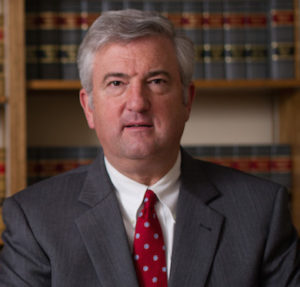
Cramer & Anderson Partner Jim Hirschfield
Connecticut’s current “Clean Slate Act” took effect July 1, 2023, allowing for the erasure of certain misdemeanors and motor vehicle violations for which a maximum term of imprisonment of not more than one year could have been imposed – and for the erasure of most Class D and E Felonies, and most unclassified Felonies for which a maximum term of imprisonment of greater than one year and not more than five years could have been imposed.
Because of changes to the law, there is a different procedure to obtain a “clean slate” for convictions which occurred before January 1, 2000, and convictions that occurred after that date. For convictions that occurred before January 1, 2000, a petition must be filed with the Court where you were sentenced for the crime you are asking the Court to erase. For convictions that occurred after January 1, 2000, those convictions are supposed to have been erased “by operation of law”.
Under the Clean Slate Act, certain convictions are not eligible for erasure. For example, while a conviction for what is termed a “Family Violence Crime” is eligible for erasure if the conviction occurred before January 1, 2000, any conviction designated as a Family Violence Crime which occurred after January 1, 2000, is not eligible for erasure.
In addition, there are certain other crimes that are not eligible for erasure, such as certain sex crimes, crimes involving firearms, assault of elderly, blind, disabled, or pregnant persons, strangulation, obscenity, pornography, and certain other crimes.
If you have been arrested for Operating Under the Influence of alcohol (OUI) and want to apply for the Pretrial Impaired Driving Intervention Program (PIDIP) but you have a prior convictions for OUI, you will need to determine if the prior OUI conviction has been or can be erased under the Clean Slate Act.
Assuming your convictions are subject to erasure under the Clean Slate Act, there are certain waiting periods before you can apply for erasure. For misdemeanors, the records will be erased seven years from the date of the individual’s most recent judgment of conviction. Convictions for violation of the OUI law will be erased 10 years from the date of the most recent judgment of conviction. For Felonies, the records will be erased 10 years from the date of the most recent judgment of conviction. The classification of the offense, and the maximum sentence that could have been imposed for a conviction of such offense, shall be determined based on the law that was in effect at the time the offense was committed.
Furthermore, the Clean Slate Act does not apply to any conviction until the convicted defendant has:
A) completed serving any period of incarceration, parole, special parole, medical parole, compassionate parole, or transitional supervision associated with any sentence for such offense, and any other offense for which the defendant has been convicted on or after January 1, 2000, in this State;
B) completed serving any period of probation for any sentence for any crime or crimes for which the defendant has been convicted on or after January 1, 2000;
C) is not the subject of any pending State criminal charge in this State.
Nothing in the Act shall be construed to require the Department of Motor Vehicles to erase criminal history record information on an operator’s driving record.
Furthermore, nothing in the Clean Slate Act shall terminate the defendant’s obligation to register as a person convicted or an offense committed with a deadly weapon, a Felony for a sexual purpose, or a criminal offense against a victim who is a minor.
No erasure under the Clean Slate Act shall be construed to terminate a defendant’s obligation to abide by a Standing Criminal Protective Order or terminate a defendant’s obligation to pay any unremitted fine imposed as part of the Court’s sentence.
If you wish to inquire about whether a prior conviction is eligible for erasure under the ConnecticutClean Slate Act, please use the “Contact Me” button below, or call Cramer & Anderson LLP at (860) 567-8718 and ask for Attorney James D. Hirschfield.

